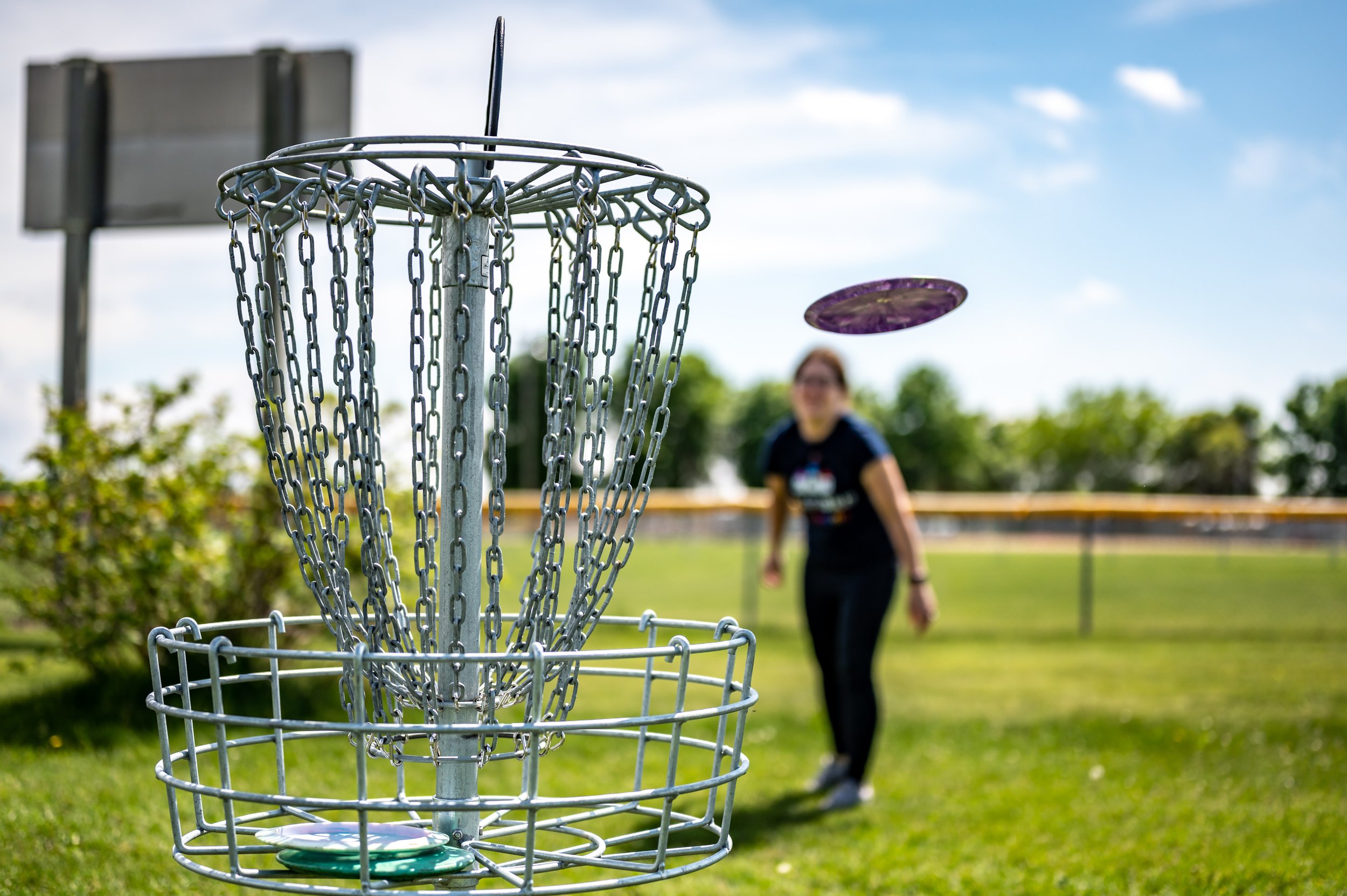Block vs. Random Practice For Disc Golf
Disc golf is a sport that requires players to throw a disc into a basket in as few throws as possible. As with any sport, training is vital to improving performance. One of the decisions players must make is whether to use random or block training. This blog post will explore the differences between these two approaches and their potential impact on disc golf training.
Random Training
Random training involves practicing different skills or shots in an unpredictable manner. For example, a player might practice throwing a backhand shot, followed by a forehand shot, and then a putt. This approach aims to simulate the randomness of actual gameplay, where players must make decisions and adapt to different situations.
One of the advantages of random training is that it can help improve a player's decision-making skills. By practicing different shots in unpredictable sequences, players can learn to quickly assess the situation and choose the best shot for the given scenario. This training can also help players develop their creativity and ability to come up with unique shot ideas.
However, one potential downside of random training is that it can be less efficient than block training. Because the training is unpredictable, it can be more challenging to measure progress or identify areas for improvement. Additionally, constantly switching between different shots and scenarios can be more mentally taxing, which may lead to fatigue and reduced performance over time.
Block Training
Block training, however, involves practicing the same skill or shot repeatedly in a structured manner. For example, a player might practice putting from a specific distance for a set amount of time. This approach aims to develop muscle memory and refine specific skills.
One of the advantages of block training is that it can be highly efficient for improving specific skills. Players can develop muscle memory by practicing the same shot repeatedly and fine tuning their technique. This training can help them become more consistent and accurate with that particular shot.
Another advantage of block training is that it can be easier to measure progress and identify areas for improvement. Because the training is more structured and predictable, players can track their performance over time and adjust their training accordingly.
However, one potential downside of block training is that it can lead to a lack of creativity and adaptability on the course. If players become too focused on a specific shot or sequence of shots, they may struggle to adapt to different situations and make quick decisions.
Links:
Mark Oxer – YouTube video
Disc Golf TIPS (Theory Into Practice): Random vs Block disc golf practice
https://youtu.be/qt4O_a-SQgA
Research Article
Challenge point: a framework for conceptualizing the effects of various practice conditions in motor learning.
https://www.researchgate.net/profile/Mark
Guadagnoli/publication/8574634_Challenge_Point_A_Framework_for_Conceptualizing_the_Eff ects_of_Various_Practice_Conditions_in_Motor_Learning/links/552d1b810cf2e089a3ad31e7/C hallenge-Point-A-Framework-for-Conceptualizing-the-Effects-of-Various-Practice-Conditions-in Motor-Learning.pdf
Skill Acquisition vs Skill Retention and Skill on Demand
Skill acquisition is the process of learning and controlling voluntary movements of joints and body segments to achieve a specific task goal. Skill acquisition focuses on understanding the behavioral and neurological factors that influence how the central nervous system adapts to learning or re-learning a motor skill.
Skill Retention and Skill on Demand
Skill retention emphasize the degree to which people are able to remember (or perform) some previously practiced material (or skill) after an elapsed period of time.
Research has shown that random training can lead to better long-term retention of skills than block training. This is because random training forces the model to actively retrieve information from memory, which strengthens the connections between neurons and improves retention. Block training, on the other hand, can lead to weaker connections between neurons, as the model may simply rely on the similarity between examples rather than actively retrieving information from memory.
Application
So, which approach is better for disc golf training - random or block? The answer is that it depends on the player's goals and preferences.
Random training may be the way for players looking to improve their decision-making skills and creativity on the course. Players can learn to think on their feet by practicing different shots in unpredictable sequences and coming up with unique shot ideas.
On the other hand, block training may be the better option for players looking to refine specific skills and become more consistent with particular shots. Players can develop muscle memory by practicing the same shot repeatedly and fine-tuning their technique.
Ultimately, the most effective training approach is likely a combination of both random and block training. Players can develop a well-rounded skill set and become more versatile on the course by mixing up the training routine and practicing various shots in both structured and unpredictable ways.
Conclusion
In conclusion, random and block training are two different approaches to disc golf training, each with advantages and potential drawbacks. When it comes to disc golf training, players should consider their individual goals and preferences to determine whether random or block training is the better approach for them. However, incorporating elements of both training approaches can help players develop a versatile skill set and improve their overall performance on the course. Ultimately, the key to success in disc golf, as with any sport, is consistent and purposeful practice.


